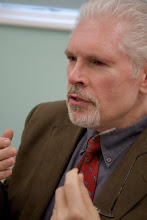After months of anticipation for the bluesiest rock the 2000s has ever encountered, two friends and I swam through throngs of people as tube strikes forced underground commuters out of subterranean movements. We climbed onto a bus and headed for the 02 Academy in Brixton. Carlsberg Special Brew in pockets, echoes of raw guitar riffs in mind, and hopes for a musically satiating night fueled smiles and anticipatory conversation.
We hopped off of the bus a few stops too early and had to fight the blistering cold. On the way, we found ourselves violently swigging the syrupy lager that boasted a 9% alcohol content. Though having seen the Black Keys twice before, I knew that inebriation was not necessary for a good time.
We picked up our tickets at will call, albeit slightly drunk, and after a quick pat down by security, we entered the hallowed Brixton Academy where a mix of London hipsters, middle-aged rockers, and couples hung casually on staircases and against walls. Our weaning buzz demanded more drinks, so we headed to the bar for a round of whiskey and cokes. Drinks in hand, we followed the swarms of people filing into the main room.
We sat down on the floor sipping whiskey, and found ourselves immersed in the aroma of expired beer. It was all too perfect for the duo from Ohio who prided themselves on a raw, lo-fi, rock’n’roll sound.
The Walkmen—a Boston based, alternative rock group opened for the Black Keys. Their performance was an exhibition of artistic contrasts. They dress in ties and oxford shirts but possess a sound that speaks of disorder. The frontman screamed with an upturned microphone as veins emerged from the side of his neck—his squinting eyes telling of his complete dedication to the songs he voiced. The crowd grooved to their songs with head nods and side steps. Yet it was apparent that everyone’s energy was being saved for the headliner.
Soon after The Walkmen left the stage, a bearded Dan Auerbach stepped into the stage lights, clad in blue jeans, vest, and a western style button-down. His accomplice, towering at 6’4,” made his way to the drum kit; his eyes hiding behind thick rimmed wayfarers, intent on the golden beast before him.
Massive red flags reminiscent of a communist political rally were dropped down onstage. At the center of them were two large black fists embracing—an icon that suited the theme of their latest album entitled “Brothers.” The Black Keys opened with Thickfreakness, a song off of their second album released in 2003. The dissonant guitar noise reminiscent of a revving motorcycle engine was unmistakable for any loyal fan, and immediately the crowd burst into movement as the blues duo played passionately onstage.
The Black Keys continued to play for about an hour and a half, and performed songs from all of their albums. Midway through their set, unfortunately, a drunken man stumbled in the crowd because of his extreme inebriation, and others around him mistakenly believed that he wanted to mosh. The music the Black Keys play can definitely not be classified as moshing music, and this raging response by the crowd left me slightly upset. Nonetheless, I managed to find salvation outside of the flailing arms and playful pushes. I am also convinced that the duo enjoyed the zealous response from the London crowd; it was probably something that they were not used to and I sensed elevating enthusiasm in their music as the newly deemed mosh pit became a youthful pseudo-warzone.
Lights off, drenched in sweat that was both of myself and of others, and ears ringing, I left the Brixton Academy with a smile on my face. Outside, people spoke of the unbelievable set that the Black Keys played. I was thankful for the global nature of music and it’s for ability to unite people hailing from different countries. Brixton was covered in darkness, drunk people tripped over themselves into taxi cabs and brick buildings, and I strolled toward the tube, immersed in incredulity as I relived the beauty of my night.
-Spencer Pratt
UCLA
-Spencer Pratt
UCLA




Wow, this is an evocative piece of music journalism. I particularly like the way you describe the journey to the venue. 'Swimming', 'fighting' and finally 'sweating'. This sounds more like a work-out than a gig. Really impressive writing and observation. Dr Q
ReplyDelete